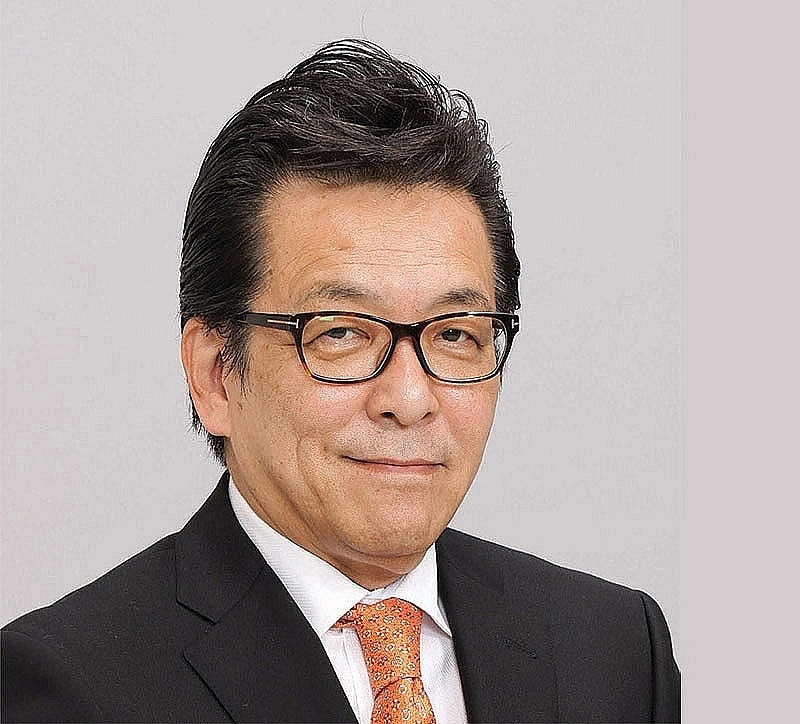Viable progress made with M&As from Japan to Vietnam
What factors motivate Japanese businesses to pursue mergers and acquisitions (M&As) in the current market?
 |
| Masataka “Sam” Yoshida, head of the Cross-border Division at RECOF Corporation |
Growth potential is the primary driver for Japanese companies, especially listed ones, which face pressure from shareholders to achieve higher growth. Japan’s population has been shrinking, and real GDP growth has averaged just 0–1 per cent over the past decade. This contrasts sharply with Vietnam, where the population is growing, and the economy maintains a steady annual growth rate of around 6 per cent.
Another motivation stems from shifts in the global supply chain. While some shifts may be temporary, recent decades have witnessed waves of production moving out of China. Current geopolitical tensions are likely to accelerate this trend in the years ahead.
How do global M&A trends influence the Vietnamese market?
The global M&A market has been affected by political instability, such as the conflicts in Ukraine and the Middle East, and economic challenges like inflation and rising interest rates. While financial markets have recently stabilised, businesses remain cautious, and M&A activity has yet to fully recover.
That said, companies with clear strategic goals continue to invest, differentiating themselves from competitors. In Vietnam, strategic investors – including Japanese firms – are drawn by numerous opportunities. Partnerships between Vietnamese and non-Vietnamese companies can create significant value, underscoring Vietnam’s appeal in the global M&A landscape.
What forms of M&A have Japanese companies favoured in Vietnam recently, and is this trend expected to change?
Historically, about two-thirds of publicly disclosed Vietnam-Japan M&A transactions have been minority investments. This reflects a soft approach, allowing Japanese companies to learn more about their partners before committing. Some minority investments are structured as step-up transactions, granting Japanese investors the option to acquire majority stakes after a predefined period.
Looking ahead, we expect more acquisitions and buyouts. These approaches offer stronger governance post-M&A and enable strategic synergies within shorter timeframes. However, this shift will require Japanese firms to better manage Vietnamese companies post-transaction and Vietnamese companies to align with higher standards in compliance and accounting practices.
Can you provide an overview of Japan-Vietnam M&A activity, and have there been any standout deals?
RECOF recorded 14 Japan-Vietnam transactions by the end of October this year, the same number as the previous year. Vietnam maintained its second-ranking position among ASEAN countries, following Singapore. Total disclosed transaction value reached $157 million, although this figure accounts for just four publicly reported deals.
While large financial sector transactions that boosted recent years’ values have yet to materialise in 2023, Japanese companies invested across various sectors, including retail, distribution, education, software, and renewable energy. In manufacturing, greenfield investments remain the primary mode of entry, but Japanese companies continue actively to expand their presence in Vietnam.
What policies could help Vietnamese businesses attract foreign capital and strengthen their position in M&A deals?
To attract foreign capital more effectively, Vietnam could consider transformative measures. Relaxing foreign ownership limits in certain sectors, raising thresholds from 49 to 65-70 per cent, would provide greater flexibility for foreign investors while enabling local companies to access larger capital pools and strategic expertise.
Improving financial infrastructure is equally critical. Enhancing stock exchange capabilities, accommodating complex financial instruments, and developing a robust private equity and venture capital ecosystem would broaden funding options for businesses.
Access to professional M&A advisory services could also be a game-changer. Advisors can help local companies refine strategies, improve valuations, and negotiate favourable terms. Promoting advisory networks and subsidising these services for small- and medium-sized enterprises could significantly enhance Vietnam’s readiness.
In 2023, you identified three key challenges for Vietnam’s M&A market: time, accounting systems, and high valuation expectations from sellers. Has this changed, and what about 2025?
Progress has been made, particularly in accounting systems. Sellers are increasingly re-examining and consolidating their financial accounts. Some have already taken action, while others are considering it, indicating a positive trend towards improved financial reporting.
High valuation expectations persist, but are gradually aligning with fair market value. Sellers are becoming more open to balancing their expectations with the tangible contributions they’ve made to their businesses. However, bridging valuation gaps remains a universal challenge, requiring buyers to better understand sellers’ perspectives.
The most persistent issue is timing. The lengthy and complex decision-making processes on the buyer side often fail to meet sellers’ expectations for swift transactions. Buyers recognise this gap, but need stronger leadership to address it. Additionally, sellers often lack the capacity to provide detailed and timely disclosures, further slowing the process.
Despite these challenges, M&A is increasingly viewed as a viable solution for both buyers and sellers, with momentum building towards a more active market.
What will drive the M&A market in Vietnam next year, and are there signs of abundant capital, better pricing, or legal reforms?
While global activity slowed in 2024 due to election cycles in major economies, a strong rebound is anticipated in 2025. Vietnam is well-positioned to benefit, supported by economic recovery, legal reforms, and favourable market dynamics. GDP growth is projected at 6.5-7 per cent, with a young, expanding population and rising middle class driving demand.
A major catalyst will be the implementation of the new Land Law, which introduces reforms to improve transparency and efficiency in land use. This law is expected to unlock significant real estate opportunities and, combined with other regulatory improvements, create a more predictable investment environment.
Transformative infrastructure projects, including Long Thanh International Airport, the North-South Expressway, and urban metro systems, are nearing completion or becoming operational. These developments will enhance Vietnam’s logistics network, solidifying its competitiveness as an investment destination.
 | Traditional M&A entities buoyed by positive outlook Several notable deals have emerged in Vietnam’s dealmaking landscape, signalling a rebound in such activities. |
 | M&As pick up pace in sectors from food to energy A raft of transactions are still taking place in the Vietnamese market across different industries, from food to renewable energy, signalling improved sentiment from investors. |
 | Acquisitions to help boost restructuring of weak banks Despite the financial hurdles in restructuring zero-VND banks, the process also presents immense opportunities for acquirers as they can leverage the restructuring to strengthen their market presence, long-term strategies, and foreign ownership limits. |
 | The rise of industrial real estate M&A Vietnam’s industrial real estate mergers and acquisitions market is experiencing unprecedented growth, fuelled by improving infrastructure, revised laws, and increasing demand from foreign investors. |
What the stars mean:
★ Poor ★ ★ Promising ★★★ Good ★★★★ Very good ★★★★★ Exceptional
Related Contents
Latest News
More News
- New rules ease foreign access to Vietnam equities (February 05, 2026 | 17:29)
- Vietnam’s IFC creates bigger stage for M&As (February 01, 2026 | 08:16)
- Game startup Panthera raises $1.5 million in seed funding (January 29, 2026 | 15:13)
- Cool Japan Fund transfers shares of CLK Cold Storage (January 28, 2026 | 17:16)
- Nissha acquires majority stake in Vietnam medical device maker (January 26, 2026 | 15:40)
- BJC to spend $723 million acquiring MM Mega Market Vietnam (January 22, 2026 | 20:29)
- NamiTech raises $4 million in funding (January 20, 2026 | 16:33)
- Livzon subsidiary seeks control of Imexpharm (January 17, 2026 | 15:54)
- Consumer deals drive Vietnam’s M&A rebound in December (January 16, 2026 | 16:08)
- Southeast Asia tech funding rebounds on late-stage deals (January 08, 2026 | 10:35)

 Tag:
Tag:



















 Mobile Version
Mobile Version